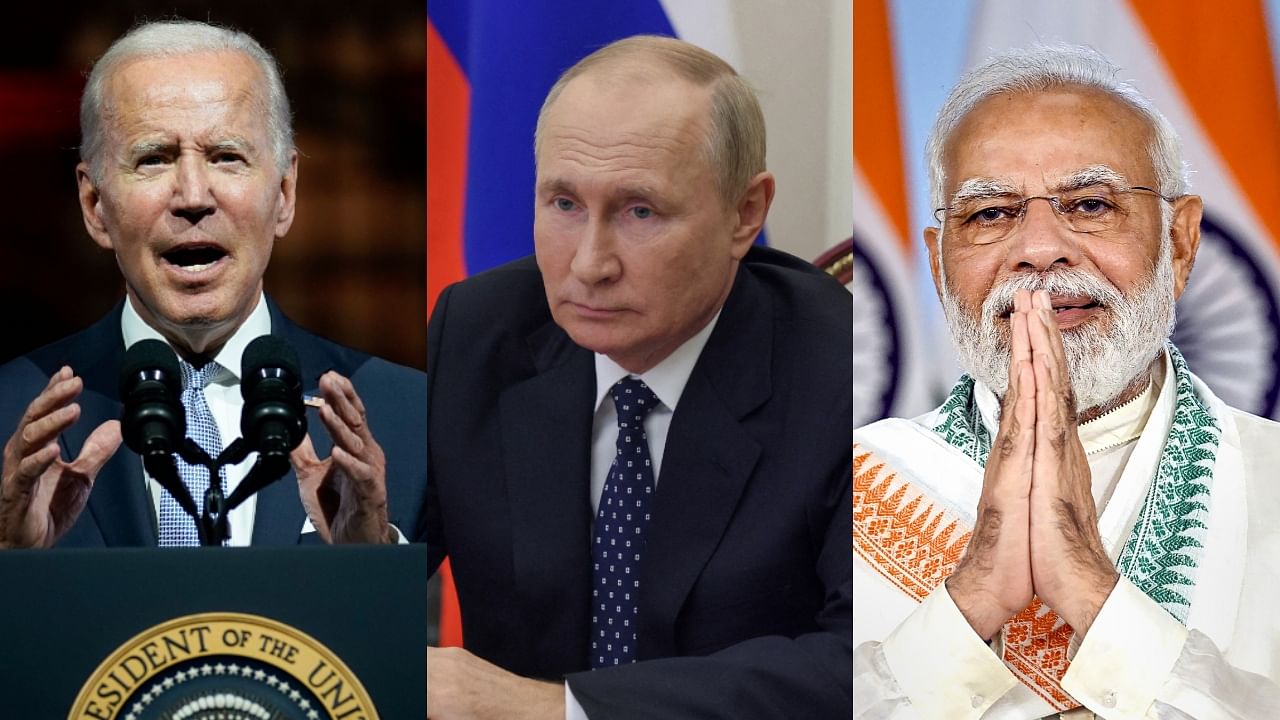
A strong US-India defence partnership rooted in shared democratic values is critical to advancing US' interests in the Indo-Pacific, three American senators have said in a legislative amendment that urges the Biden administration to encourage New Delhi to accelerate its transition away from Russian weapons.
Senator Mark Warner, Co-Chair of the Senate India Caucus, along with Senators Jack reed and Jim Inhofe, in the amendment to the National Defense Authorisation Act, says that India faces immediate and serious regional border threats from China, with continued military aggression by the Chinese people along the India-China border.
The relations between India and China have soured over the incursion by Chinese troops in eastern Ladakh in May 2020, leading to a prolonged military standoff that is still unresolved. India has made it clear to China that peace and tranquillity along the Line of Actual Control (LAC) were key for the overall development of the bilateral ties.
“The United States should take additional steps to encourage India to accelerate its transition away from weapons and defence systems manufactured in the Russian Federation while strongly supporting India's immediate defense needs,” said the amendment.
It said that for its national defence, India relies on weapons manufactured by Russia.
Russia has been a major supplier of military hardware to India. In October 2018, India signed a $5 billion deal with Russia to buy five units of the S-400 air defence missile systems, notwithstanding a warning by the US that going ahead with the contract may invite sanctions under the provisions of Countering America's Adversaries Through Sanctions Act (CAATSA).
Russia started delivery of the first regiment of the missile systems in December last year and it has been deployed to cover parts of the border with China in the northern sector as well as the frontier with Pakistan.
“A strong United States-India defence partnership rooted in shared democratic values is critical to advancing United States interests in the Indo-Pacific region,” the amendment said.
It said the such partnership between the world's oldest and largest democracies is critical and should continue to be strengthened in response to increasing threats in the Indo-Pacific region so as to send an unequivocal signal that sovereignty and international law must be respected.
China, which has territorial disputes with many countries in the strategic Indo-Pacific region, has been opposing the US’ proactive policy specifically in the disputed South China Sea.
China claims nearly all of the disputed South China Sea, though Taiwan, the Philippines, Brunei, Malaysia and Vietnam all claim parts of it. Beijing has built artificial islands and military installations in the South China Sea. Beijing is also involved in a maritime dispute with Japan over the East China Sea.
The amendment welcomes the US-India Initiative on Critical and Emerging Technologies and says that it is an essential step to developing closer partnerships between the governments, academia, and industry in the two countries for the purpose of addressing the latest advances in artificial intelligence, quantum computing, biotechnology, aerospace, and semiconductor manufacturing.
“Collaborations between engineers and computer scientists through the United States-India Initiative on Critical and Emerging Technologies are vital to help ensure that the United States, India, and other democracies around the world foster innovation and facilitate technological advances that continue to far outpace the technology of the Russian Federation and the People's Republic of China,” said the proposed amendment.